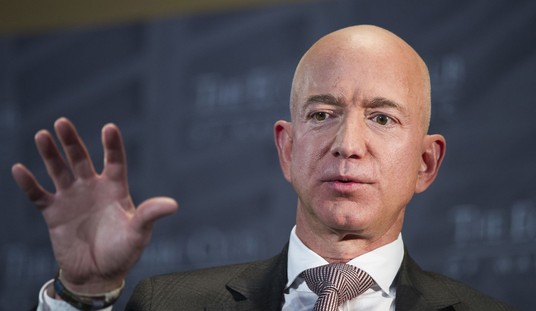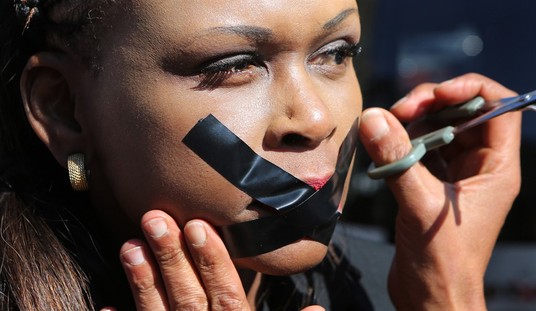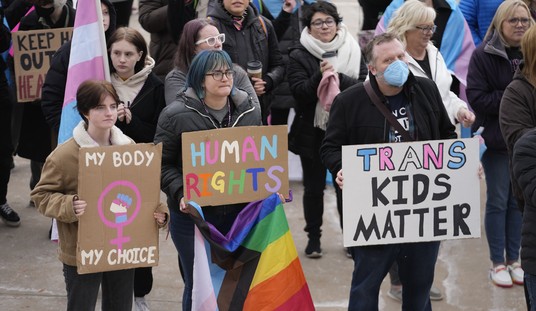There are no absolute certainties when it comes to mass killers, but a few things come close. Someone will use the term “disaffected youth” to describe the perpetrator. Somewhere there will be a diary—either Tweets, blogs, YouTube videos or scrawled musings in a lined notebook. And the murderer will—with more than a 98% certainty—be male…
There is no shortage of explanations for the overwhelming maleness of the monster population. Some of the answers reveal a lot—and yet nothing at all. Testosterone fuels aggression. Stipulated. Boys take longer to mature than girls. Stipulated. And like the forebrains of young females, those of young males are not fully myelinated until the late 20s or even early 30s. The forebrain is where executive functions—impulse control, reflection, awareness of consequences—live. In the case of males, who are already trip-wired for aggression, that provides a lot of years to behave badly…
But there’s more, and a lot of it has to do with status. Males, for better or worse, are ferociously protective of their position in any tribe, community, or society, and any threat to that position goes to the core of their identity and self-esteem. It’s a common observation in times of recession that while loss of a job is miserable for both genders, it’s the males who are likelier to become completely undone by it. Without the role of worker and money-earner, men feel hollowed-out, and that too often calls for revenge. it’s not for nothing that the victims in workplace shootings are often managers who just the month before demoted or sacked the shooter.
I do not blame the Pick-Up Artist community (or its somehow even more deeply tortured counterpart, the Anti-Pick-Up-Artist community) for the deaths of seven people. The man who committed this horrific crime is responsible for this heinous act. But I was interested to see how these groups are reacting to the news. It is disturbing, if not surprising, that they are using these murders to reinforce their hatred of women and “Beta” men, and to cement their own status at the top of the pyramid.
When news of the shooting broke, PUA Hate members attempted to absolve themselves by critiquing Rodger’s sex appeal (“Short lower third and gay midface, with zero brow ridge,” one decided), ridiculing his mother’s looks, and scrambling to assert authority among themselves. (“Only high-T guys should be allowed to give advice here. Nich, can you add that as a rule?” one poster said). Another poster suggested that Rodger was such a Beta that no one would care if he’d murdered people…
Misogyny and violence against women are social problems as well as individual ones. The fact that these men see “game” as the remedy to all personal and social ills is perhaps the greatest indictment of the way they view the world.
Rodger’s horrifying violence, the videos he posted, and the way he saw himself are all extreme. But they’re also a reflection of the way poisonous ideals of masculinity affect men. To some extent, I’ve felt the frustration Rodger felt, and I think other men may feel it as well. This is not an excuse for Rodger’s actions, but something more painful: a confrontation of the ways in which he’s not deviant, but typical. Acknowledging that seems like an important part of making sure this kind of thinking doesn’t remain typical any longer…
In her book Between Men, Eve Sedgwick dissects this kind of thinking: Men typically route their feelings toward and competition with one another through women, she says. Women become tools through which men show their power and worth to other men. Success with women is also an important part of men’s self-image—that’s a big part of what it means to “be a man.” This seems to be the kind of thinking at work when Rodger says he feels like women are “treat[ing] me like scum” when they have boyfriends who aren’t him. To him, women aren’t people; they’re markers of who is and who is not a man. If a woman chooses someone else, the thinking goes, that means Rodger and others like him are not men…
This kind of thinking creates a version of male identity that is bifurcated, or split in two. There is the man you should be, and then there is the failed, non-man thing you are. You can see this in ugly detail in Rodger’s videos, where he veers back and forth between outlandish claims of his own magnificence and despairing statements of his own inconsequentiality. At one moment he’s the “ultimate gentlemen,” the next he’s “so invisible as I walk through my college, because none of the girls pay attention to me.” He is super human and then he’s nothing; there’s no space between the two. For Rodger, this could only be resolved with the ultimate expression of “manliness”: violence. “If I can’t have you girls, I will destroy you,” he says. And he destroyed himself, too: that pitiful failed thing who was not a man.
Among men, misogyny hides in plain sight, and not just because most men are oblivious to the problem or callous toward its impact. Men who objectify and threaten women often strategically obscure their actions from other men, taking care to harass women when other men aren’t around.
The night after the murders, I was at a backyard party in New York, talking with a female friend, when a drunk man stepped right between us. “I was thinking the exact same thing,” he said. As we had been discussing pay discrepancies between male and female journalists, we informed him that this was unlikely. But we politely endured him as he dominated our conversation, insisted on hugging me, and talked too long about his obsession with my friend’s hair. I escaped inside, and my friend followed a few minutes later. The guy had asked for her phone number, and she had declined, informing him that she was married and, by the way, her husband was at the party. “Why did I say that? I wouldn’t have been interested in him even if I weren’t married,” she told me. “Being married was, like, the sixth most pressing reason you weren’t into him,” I said. We agreed that she had said this because aggressive men are more likely to defer to another man’s domain than to accept a woman’s autonomous rejection of him…
These are forms of male aggression that only women see. But even when men are afforded a front seat to harassment, they don’t always have the correct vantage point for recognizing the subtlety of its operation. Four years before the murders, I was sitting in a bar in Washington, D.C. with a male friend. Another young woman was alone at the bar when an older man scooted next to her. He was aggressive, wasted, and sitting too close, but she smiled curtly at his ramblings and laughed softly at his jokes as she patiently downed her drink. “Why is she humoring him?” my friend asked me. “You would never do that.” I was too embarrassed to say: “Because he looks scary” and “I do it all the time.”
Alongside American Psycho and “My Twisted World,” the killer’s autobiography, we could place Hamlet, another story about a hyper-privileged young man whose fury, fear and confusion around sex and manliness sent him into a postmodern spiral of self-obsession and carnage.
In today’s culture, where we sometimes seem to want everyone to be recognized as a hero, we can fail to see that heroism often comes at a great price. Hamlet refused to accept that heroism was his destiny, because of the behavior it required. One tradition of masculinity crashed against another. The result was tragedy.
For too many young men today, something similar seems poised to happen again and again. One tradition of manliness points them toward the worship of wealth, sex, and power—and toward crushing depression if all those things elude their grasp. Another tradition of manliness would point them toward discipline, sacrifice, and self-denial.
The first tradition, in fairy-tale terms, is the villain tradition. The second is for heroes. But in today’s world, the worst of traditionalism is being aggrandized, and the best is being lost in the noise.
How much longer are we going to be in denial that there’s a thing called “rape culture” and we ought to do something about it?
No, not the straw man that all men are constantly plotting rape, but that we live in an entitlement culture where guys think they need to be having sex with girls in order to be happy and fulfilled. That in a culture that constantly celebrates the narrative of guys trying hard, overcoming challenges, concocting clever ruses and automatically getting a woman thrown at them as a prize as a result, there will always be some guy who crosses the line into committing a violent crime to get what he “deserves,” or get vengeance for being denied it.
To paraphrase the great John Oliver, listen up, fellow self-pitying nerd boys—we are not the victims here. We are not the underdogs. We are not the ones who have our ownership over our bodies and our emotions stepped on constantly by other people’s entitlement. We’re not the ones where one out of six of us will have someone violently attempt to take control of our bodies in our lifetimes…
What did Elliot Rodger need? He didn’t need to get laid. None of us nerdy frustrated guys need to get laid. When I was an asshole with rants full of self-pity and entitlement, getting laid would not have helped me.
The people who commit mass acts of violence are crazy. Some are also ideologically motivated. We call them terrorists. And yet while in America we’re quick to recognize and politicize the broader implications of Islamic extremism, misogyny is treated not as an ideology but simply a sub-category of crazy.
That not only ignores but quietly allows misogyny-as-ideology to go unexamined in all its other forms, from domestic violence to date rape to street harassment to economic inequality and more—chalking injustice up to individual aberrations rather than a system of dehumanization that is both perpetuated and protected by our social, political, and economic structures.
If the Santa Barbara shooter had been Muslim, and left the same sorts of video screeds and more, our government and media would undoubtedly be labeling this incident as terrorism. Just as an Islamic fundamentalist terrorist sets out to kill American infidels simply because they are “American infidels,” the Santa Barbara shooter set out to kill women simply because they were women. You tell me the difference. To fail to label the latter terrorism suggests a politicized use of the term, one interested in defending Judeo-Christian Americans and values, but not women.
It is striking how therapeutic is the language used by Rodger in his videos and his murder manifesto. He talks about how people’s attitudes towards him “really decreased my self-esteem.” He clearly sees such assaults on his self-esteem as unacceptable, saying “if they won’t accept me… then they are my enemies.” In short, fail to offer recognition to this damaged creature and you will pay the price. And then he makes the key cry of our therapeutic era: “It’s not fair. Life is not fair.”…
This isn’t a religious thing. There’s no evidence that Rodger thought he was a messiah, as other nutjobs have. Rather, it’s a therapeutic thing. Therapy culture has created a new army of little gods made fearsomely angry by any perceived insult against their self-esteem. It has generated groups of people who, like something out of the Old Testament, think nothing of squishing things that offend them or hurt their sense of self-worth. It has made a whole new anti-social generation whose desire to protect themselves from emotional harm overrides the older human instinct to engage with other people and be tolerant of their differences. When Rodger says “I am a living god,” he is speaking, not from any kind of wacky religious script, but from the mainstream bible of therapy. The cult of therapy convinces individuals they are gods and that their self-esteem is a gospel that must not be blasphemed against. As the New York Times columnist David Brooks once said of a therapeutic self-help guide to life, death, and life after death, “In this heaven, God and his glory are not the center of attention. It’s all about you.” The self has elbowed aside God; the self is God, as Rodger seems to have realised.
Perhaps we should see Rodger as a kind of therapeutic terrorist, using murder to gain recognition; his rampage can be seen as a very violent therapy session, a real primal scream in defense of his sacred self-esteem.
“I don’t care about your sympathy. I don’t give a s— that you feel sorry for me,” Richard Martinez said during an extensive interview, his face flushed as tears rolled down his face. “Get to work and do something. I’ll tell the president the same thing if he calls me. Getting a call from a politician doesn’t impress me.”
Saying “we are all to blame” for the death of his 20-year-old son, Martinez urged the public to join him in demanding “immediate action” from members of Congress and President Obama to curb gun violence by passing stricter gun-control laws.
“Today, I’m going to ask every person I can find to send a postcard to every politician they can think of with three words on it: Not one more,” he said Tuesday. “People are looking for something to do. I’m asking people to stand up for something. Enough is enough.”
Nevertheless, as disturbing as this is, we have a good word for attitudes and behavior such as this. That word is “crazy.” The essential trouble with the panoply of indignant hashtags and self-righteous op-eds that have appeared in the aftermath of the outrage is that they have tended to establish a false dichotomy: Either one believes that this incident is directly reflective of a given problem or one is denying that that given problem exists at all. This is silly and manipulative. To suggest that the cartoon misogyny of an extremely disturbed young man is not usefully related to women’s rights in general is not to suggest that women face no problems in America at all — any more than to suggest that dismissing as schizophrenia the “microwave machine” surveillance-paranoia of the sick man who shot up the Navy Yard implies that Americans have nothing to fear from wiretaps or the relentless pace of the Internet. It is just to say that the shooter’s ostensible motive is of limited utility going forward, and that if it wasn’t this, it would almost certainly have been something else…
All told, the killer hated everybody. He hated himself. He hated women. He hated other men because women liked them. He hated white people because he was only half-white, and he hated minorities because he wasn’t as non-white as they were. He craved sex, but was also disgusted by it. He hated his classmates, but also his whole town, which he had originally planned to wipe out in toto on Halloween. Four of the victims were men, two were women; three were ethnic Chinese, three were white. This was a crime whose execution was as complicated — and, possibly, as meaningless — as its conception. When terror strikes, the first word to our lips is “why?” We sully the search for genuine answers when, just hours into our inquiry, we are seen already to have woven the questions into our Weltanschauung.
Why, in our age of unprecedented plenty—and, at least in America, unprecedented power for women—is victimhood so appealing to so many? When complete strangers were murdered on the West Coast, why do hundreds of thousands of people, healthy in body if not in mind, enthusiastically latch on, insisting that they were victims too?
For certain people, the Internet offers a compelling, powerful alternate universe in which to dwell. Press reports describe the accused murderer as living in a lonely world of YouTube videos, video games, and twisted representations of reality. In his mind, everything—every loss, every perceived failure, every tiny personal slight, real or imagined—was blown out of proportion. Everything was taken personally. Everything, in the end, was all about him and his imagined victimhood.
Scarily, many of the posters on #YesAllWomen, to varying degrees, seem to share the same problem. For all of his hatred of women, the crazed, lonely murderer and the impassioned “feminist” Twitter activists might have something in common after all. Yikes, ladies. Yikes.
“Please listen to me,” Beck begged his audience. “You’ve got to get the video games out of your child’s hands. Please. I’m having a hard enough time trying to do it in my own home. … Enough. No more. Because they cannot handle it. This is not the same as Pac-Man. It is not the same. These are virtual worlds where they live. They live in these worlds; talk to them.”
“Brains are being rewired here,” Beck’s co-host Pat Gray added, “and nobody is paying attention.”









Join the conversation as a VIP Member